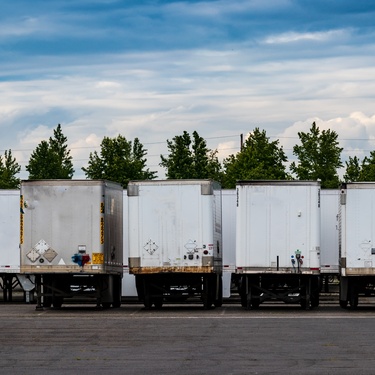
Engineering innovations are stepping up to meet the global demand for optimized energy use. From industrial plants to residential systems, the ability to conserve energy while maintaining performance is essential for environmental and economic benefits.
We've rounded up the top five compact engineering solutions for energy efficiency that are shaping industries and paving the way for responsible energy consumption.
1. Heat Recovery Systems
Modern heat recovery systems capture and reuse heat from exhaust or processes, reducing energy waste and boosting efficiency. Heat recovery ventilation (HRV) systems, for example, transfer warmth from outgoing stale air to incoming fresh air, minimizing heat loss while improving air quality.
Ideal for homes and businesses, these systems lower energy bills and environmental impact. With advanced technology, they offer a sustainable approach to optimizing energy use and reducing carbon footprints.
2. LED Technology
Compact and cutting-edge, LEDs have revolutionized lighting standards as the most energy-efficient option available. They use up to 80% less energy than traditional incandescent bulbs, making them a popular choice for both residential and commercial settings seeking to reduce energy costs.
Advances in smart technology have expanded their capabilities, enabling users to easily adjust and optimize lighting to suit various activities and preferences, thereby enhancing convenience and efficiency.
3. Variable Frequency Drives (VFDs)
By precisely adjusting the speed and torque of electric motors to match specific operational demands, Variable Frequency Drives (VFDs) offer a seamless and energy-efficient solution across various industries.
This advanced technology greatly decreases energy use, whether it's managing conveyor belts in factories, pumps in water treatment plants, or optimizing HVAC systems in commercial buildings. It helps prolong equipment life by ensuring smooth acceleration and deceleration.
4. Compact Solar Panels
The development of smaller, high-output solar panels offers more flexible energy solutions, facilitating sustainable power generation without the need for large, cumbersome installations. Building-integrated photovoltaics (BIPVs) have made considerable progress.
They now often replace traditional roof materials such as shingles or tiles while serving as both weatherproofing and solar power generators simultaneously. This integration boosts energy efficiency while maintaining aesthetic appeal, featuring a compact, space-saving design that optimizes roof space and minimizes visual impact.
5. Low-Power Solenoid Valves
Low-power solenoid valves are small yet powerful components widely used in applications such as fluid control, automation, and HVAC systems. Their efficient design reduces energy consumption, making them ideal for battery-powered or energy-sensitive environments.
Despite their compact size, they feature precise control capabilities and reliable operation, which contribute to energy optimization and system efficiency. These valves are essential in modern technological solutions where space-saving and energy efficiency are critical.
These combat engineering solutions for energy efficiency showcase remarkable progress in sustainability and smarter energy use. You're upgrading your lighting or integrating solar solutions—each step helps reduce energy waste and creates a more sustainable future.
Bio: Casey is a passionate copyeditor highly motivated to provide compelling SEO content in the digital marketing space. Her expertise includes a vast range of industries from highly technical, consumer, and lifestyle-based, with an emphasis on attention to detail and readability.




















